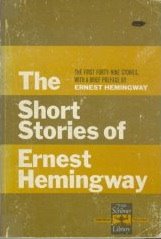 I heard of Ali Smith's new novel, The Accidental, from a newspaper article about the finalists for the Man Booker prize that labeled the book as "experimental". The last experimental novel I read was House of Leaves, and I loved that, so, no cover needed, I checked it out. The story is simple, and a bit misleading. A woman named Amber enters a house without explanation and touches the lives of the four family members occupying it (as a summer getaway) in completely distinct and absolute ways. Eve thinks she's a student her husband is sleeping with and Michael, her husband, thinks she's a friend of Eve's. She wriggles her way into the family, and, due to increasingly blunt honesty, pushes herself out. Yet in the process she completely changes each and every one of the characters.
I heard of Ali Smith's new novel, The Accidental, from a newspaper article about the finalists for the Man Booker prize that labeled the book as "experimental". The last experimental novel I read was House of Leaves, and I loved that, so, no cover needed, I checked it out. The story is simple, and a bit misleading. A woman named Amber enters a house without explanation and touches the lives of the four family members occupying it (as a summer getaway) in completely distinct and absolute ways. Eve thinks she's a student her husband is sleeping with and Michael, her husband, thinks she's a friend of Eve's. She wriggles her way into the family, and, due to increasingly blunt honesty, pushes herself out. Yet in the process she completely changes each and every one of the characters.Smith is a complete wordsmith and her novel isn't so much circular as it is enclosed. The structure is delicate and precise, which agrees with me immensely because I like precise art, art that I can decipher. There are three parts to the novel: the beginning, the middle, and the end. Each has four chapters. The first three begin and end in the middle of a sentence, seemingly disjointed but with purpose, the fourth begins in the middle of a sentence and ends with a period. And a final chapter offers brief, if tangential, perspective. Starting and ending the chapters in the middle of a sentence blends the stories together, makes them seamless, and provides a great metaphor for the overlapping nature of truth as it appears to different people in the same situation. The only word I can think to describe the novel fully is vertiginous. The novel folds in on itself constantly but also is delicately structured so that the beginning and end revolve around neat little poems in the middle.
Satisfyingly, the novel examines the nature of truth, and, with four chapters in each section offering differing perspectives of the days of each of the characters, ultimately asks more questions than it answers. But that's the point, that's the beauty of the novel. At one point, the son, Magnus, who is completely enamored with Amber (he thinks she is an angel sent to save him, and later a teacher, of sorts), and fancies himself as "Hologram Boy" and "Electrostatic Man", alter-ego's he's created in the wake of his teen angst, gets frustrated when Amber questions his assertion that a man named Leibniz invented the equals sign. His proof is that he read it in a textbook or a teacher told him and so it must be true. She asks if anyone checks the teachers, asks if it can possibly be untrue, and makes Magnus question his own knowledge. Later Magnus finds that it wasn't Leibniz that invented the equals sign, it was a man named Robert Recorde.
And so is illustrated the unifying theme of the book: truth. A truth that changes, that has many right answers, that has many different perspectives. A truth that in Ali Smith's book asks many more questions than it answers. truth I can swallow.
The cover's intriguing, and even better after reading the novel.


No comments:
Post a Comment